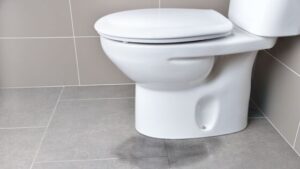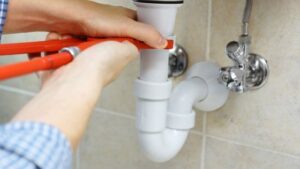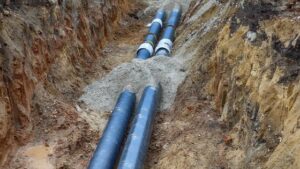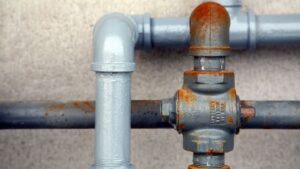
While you may think that your bathroom is spotlessly clean, the odors from the sink may send a contrary message. Those smells may be due to the different items, such as hair and soap residues, which gradually build up inside the drain. If these aren’t cleaned out periodically, they can accumulate to a level that results in clogs within the system. Follow the recommendations provided below by Tureks Plumbing Services, a plumbing company in Appleton, WI, to easily keep the sink drains clean.
Remove Debris on a Weekly Basis
Prevention has always been better than cure, and that’s why we at Turek’s Plumbing Services recommend that you get into a weekly habit of getting rid of debris from sink drains. Do this by removing the adjustable metal stopper and clean as far inside the drain as you can access. Clean the stopper itself as well so that it is free from debris buildups.
Use an Appropriate Drain Cleaner
Ask any Fox Valley plumber and they will caution you against using corrosive cleaning products when cleaning sink drains. This is because those corrosive products are dangerous not just for the plumbing pipes but the septic system as well.
To kill the bacteria responsible for the unwanted smells you notice, pick a biodegradable and non-corrosive pipe cleaner. Use this product as directed on the label, but in any event no more than once a month.
Turek’s Plumbing Services cautions against using antibacterial products or bleach to clean sink drains. These will harm the pipes and sewer system.
Unclog the Sink
You can use one or more of the four steps below to unclog sink drains without calling a Fox Valley plumber for help:
Use Boiling Water
Take about half a gallon of boiling water and pour it down the drain. Many of the clogs in sink drains are due to the accumulation of soap residues and some solids, such as hair, trapped in the caked residues.
For this reason, plumbing companies in Orange County, assure you that the hot water will break up many of those clogs and they will flow down the drain.
Plunge the Drain
Tureks Plumbing Services strongly suggests that you select a plunger that can form a seal on the opening of the drain. If you aren’t sure that you have the right plunger, ask a plumber to recommend a product.
Plunge the drain five to six times while the hot water is still slowly making its way down the clogged drain. The pressure created will expedite the process of breaking up the clog.
Use Baking Soda and White Vinegar
To use this method, plumbers in Sacramento, CA from Gilmore Heating, Air & Plumbing recommend that you start by pouring approximately half a gallon of water down the drain. Wait for several minutes and plunge the drain several times to break up as much of the clog as possible.
Thereafter, pour a cup of baking soda down the drain and leave it to sit for several minutes. Now take a cup of white vinegar and pour it down the drain as well. Cover the opening of the drain immediately so that as the mixture of vinegar and baking soda foams, it is forced to move through the clog and break it up in order to flow down the drain.
Leave this mixture to sit inside the drain for at least an hour. Thereafter, get another half a gallon of hot water and rinse the drain with it. One additional reason for using vinegar is that it will remove the odors in the drain.
Snake the Sink Drain
Some deposits in the sink drain may be so stubborn that the methods above may be unable to dislodge them. For such clogs, you may need to snake the drain.
Visit a local hardware store or talk to a Fox Valley plumber to secure a drain snake. Keep inserting and retrieving the snake until the drain snake can no longer find any more debris to remove from the drain. When you get to this point, pour some water down the drain and confirm that the sink drain is now working properly.
The measures above will generally be sufficient to keep your sink drains clean and clear. However, some homeowners may notice that the drains keep developing clogs from time to time despite every effort made to prevent such an occurrence. In such a case. Contact Turek’s Plumbing Services for professional advice. Our experienced plumbers will inspect the drains and recommend the best course of action. For example, you may need to replace the old plumbing pipes with plastic ones which are less prone to clog formation. Contact us today and start enjoying trouble-free drains!


 Garbage Disposal FAQ
Garbage Disposal FAQ Trees are a great addition to your lawn or compound. Their benefits range from increasing the aesthetic value of your home to holding the soil together and preventing erosion and providing natural shade.
Trees are a great addition to your lawn or compound. Their benefits range from increasing the aesthetic value of your home to holding the soil together and preventing erosion and providing natural shade.  One of the worst problems that any homeowner can ever have to deal with is a sewer backup. We’ve received many plumbing emergency calls from Appleton, Wisconsin homeowners asking Tureks Plumbing Services for help. Almost every time it’s a sewer backup. So, we’ve compiled the following common causes of why your home water may be slow so that you can know how to avert the avoidable factors behind this serious problem.
One of the worst problems that any homeowner can ever have to deal with is a sewer backup. We’ve received many plumbing emergency calls from Appleton, Wisconsin homeowners asking Tureks Plumbing Services for help. Almost every time it’s a sewer backup. So, we’ve compiled the following common causes of why your home water may be slow so that you can know how to avert the avoidable factors behind this serious problem. Like most other things, the more the bathroom is used, the more likely it is that problems will start to arise, which you will then have to fix. Whenever there is a problem in the bathroom, the first reaction of people is to call your Fox Valley plumber to get them fixed. But all problems are not of the severity that only a professional plumber can fix them. There are many bathroom problems you can fix yourself, and this can save you a lot of time and money.
Like most other things, the more the bathroom is used, the more likely it is that problems will start to arise, which you will then have to fix. Whenever there is a problem in the bathroom, the first reaction of people is to call your Fox Valley plumber to get them fixed. But all problems are not of the severity that only a professional plumber can fix them. There are many bathroom problems you can fix yourself, and this can save you a lot of time and money.  A leaking toilet base can prove to be a big nuisance in the bathroom, especially if it is an old bathroom. A leaking toilet base is an unhygienic problem, and it can make your bathroom look not well taken care of. Another problem is that it can damage your bathroom flooring, and leave stains. To avoid severe water damage arising because of a leaking toilet base, you can address this common plumbing problem by fixing it yourself even if it the first time you are trying your hand at plumbing repairs.
A leaking toilet base can prove to be a big nuisance in the bathroom, especially if it is an old bathroom. A leaking toilet base is an unhygienic problem, and it can make your bathroom look not well taken care of. Another problem is that it can damage your bathroom flooring, and leave stains. To avoid severe water damage arising because of a leaking toilet base, you can address this common plumbing problem by fixing it yourself even if it the first time you are trying your hand at plumbing repairs. You should be concerned if one or more drains in your home are emitting a gurgling sound each time that drain or another one is used. While the sound can be annoying, it is actually a good thing because it draws your attention to a developing problem. Read on and discover why drains gurgle and what you can do to fix the problem on your own before calling the experts at Tureks Plumbing Services for help.
You should be concerned if one or more drains in your home are emitting a gurgling sound each time that drain or another one is used. While the sound can be annoying, it is actually a good thing because it draws your attention to a developing problem. Read on and discover why drains gurgle and what you can do to fix the problem on your own before calling the experts at Tureks Plumbing Services for help. Home insurance policies usually have some significant gaps when you consider your sewer line. If that sewer line ever develops a problem, you may find yourself responsible for meeting the entire cost of the repair or replacement if you hadn’t secured insurance for this system. In this article, you will discover what you need to know as you shop for coverage for this expensive component of your home.
Home insurance policies usually have some significant gaps when you consider your sewer line. If that sewer line ever develops a problem, you may find yourself responsible for meeting the entire cost of the repair or replacement if you hadn’t secured insurance for this system. In this article, you will discover what you need to know as you shop for coverage for this expensive component of your home. The sewer lines on your property are important pieces of infrastructure because they move wastes and water away from your home. It is therefore essential for you to maintain this system so that it gives you years of trouble-free service. One of the crucial things you should know is the location of the
The sewer lines on your property are important pieces of infrastructure because they move wastes and water away from your home. It is therefore essential for you to maintain this system so that it gives you years of trouble-free service. One of the crucial things you should know is the location of the  Most people don’t pay attention to their septic system until they suddenly have a problem. If you have a septic tank problem, you will be unable to use the toilet, take a shower, or even run the dishwasher. The inconveniences that you go through while you wait for professional help to arrive can be enough to motivate you to read up on what could have happened. In this article, you’ll discover common septic tank problems and how you can prevent slow drain septic problems from occurring. Tureks Plumbing Services suggests that you pay special attention to the following common septic tank problems.
Most people don’t pay attention to their septic system until they suddenly have a problem. If you have a septic tank problem, you will be unable to use the toilet, take a shower, or even run the dishwasher. The inconveniences that you go through while you wait for professional help to arrive can be enough to motivate you to read up on what could have happened. In this article, you’ll discover common septic tank problems and how you can prevent slow drain septic problems from occurring. Tureks Plumbing Services suggests that you pay special attention to the following common septic tank problems.